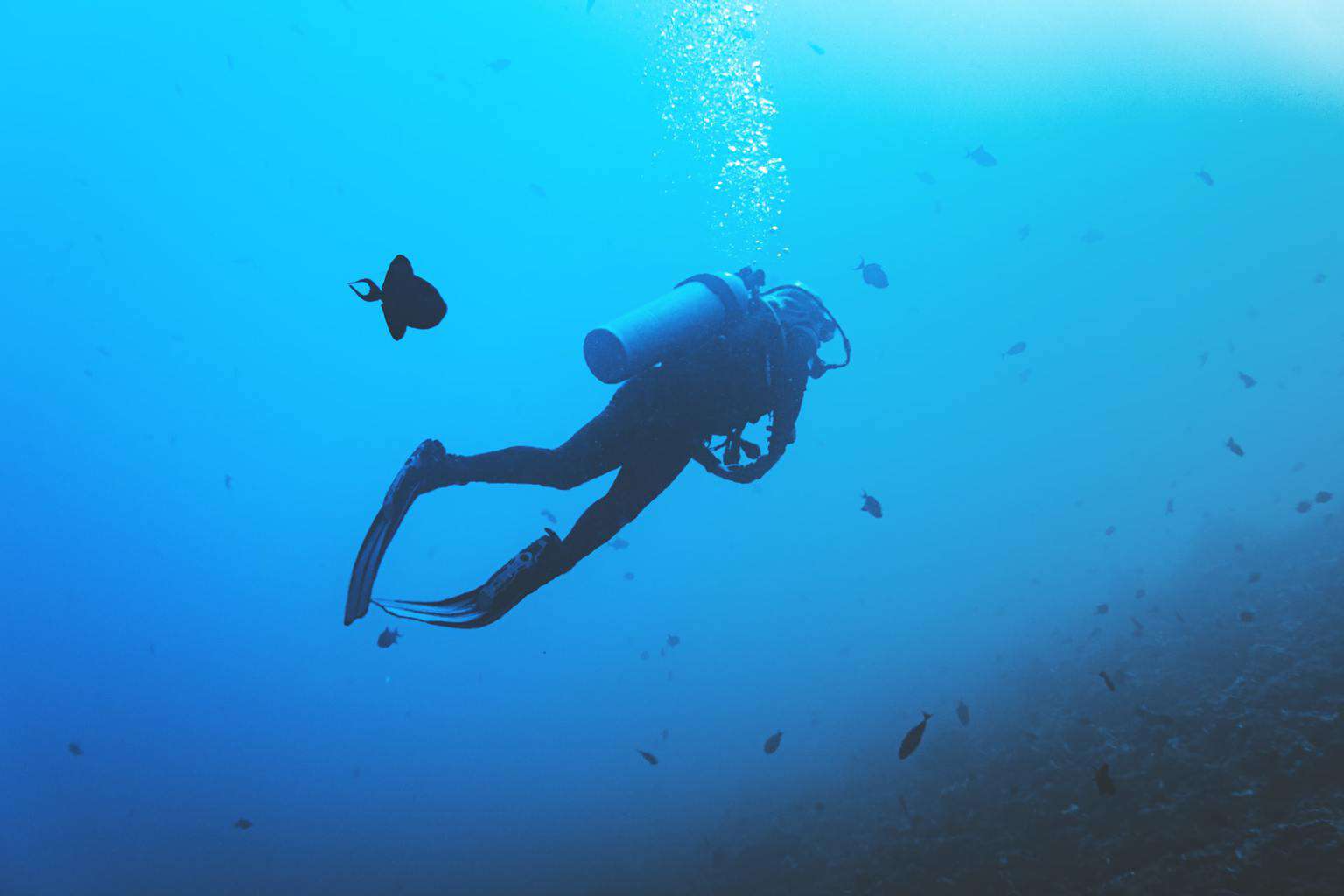The ocean covers 71% of the earth’s surface, so if you like exploring nature, then visiting the underwater world could seem like an exciting idea.
You could see amazing coral reefs or visit ancient shipwrecks for yourself rather than just watching them on National Geographic documentaries.
But you might be concerned about how safe scuba diving is. After all, being underwater is not our natural environment.
This article will show you that scuba diving isn’t especially dangerous by looking at some general and specific questions.
We will look at how scuba diving concerns can be alleviated by understanding and following the training that all divers receive and maintaining good general health.
- What Are the Odds of Dying While Scuba Diving?
- What Happens to Your Lungs When Scuba Diving?
- What Happens if You Cough While Scuba Diving?
- Can Your Lungs Explode Scuba Diving?
- At What Depth Is Scuba Diving Dangerous?
- Is Scuba Diving Dangerous at 30 Feet?
- At What Age Should You Stop Scuba Diving?
- Can You Scuba Dive Every Day?
- 6 Things You Should Not Do After Scuba Diving
- Conclusion
- You Might Also Like…
Disclosure: this post contains affiliate links (clearly marked with ), which means we may earn a commission if you buy something through them, at no additional cost to you.
What Are the Odds of Dying While Scuba Diving?
The odds of dying while scuba diving are very low and compare favorably with other leisure activities.
A 2011 scientific study showed that in the United States and Canada, there are approximately 1.8 deaths per million recreational scuba dives made, which puts it in the category of “relatively low risk.”
This equates to one death in approximately every 556,000 recreational scuba dives.
To put that into some context, we can look at some other sports such as skydiving, which reports a rate of one fatality per 220,301 jumps, or more than twice that of scuba diving.
Mountain Hiking reports a fatality rate of 5.7 deaths per million hours hiked. More than three times the figure for scuba diving.
When we consider the odds of dying in similar leisure activities, we can see that scuba diving can be logically regarded as low risk.
This is due in large part to the training that every diver receives before they get their certification.
Unlike in some sports, it is not possible to go scuba diving without having received training first from a professional.
Following the rules that a diver has been taught and maintaining their fitness is the best way to stay safe underwater and is amongst the reasons that the odds of dying while scuba diving are so low.
What Happens to Your Lungs When Scuba Diving?
Breathing is, of course, an essential activity for maintaining a long and prosperous life and your lungs are a vital component of that all working correctly.
So how do your lungs react to scuba diving?
Simply put, they work as usual. Just so long as you follow the most important rule of scuba diving:
Never hold your breath underwater when scuba diving. Always breathe continuously.
As we descend on a scuba dive, our body is subject to increased pressure from the water’s weight above us.
The deeper we go, the more pressure there is.
Because we’re mostly made of water and pressure doesn’t affect liquids, we don’t need to worry about our bodies being compressed.
However, our lungs are air-filled, and air, like all gasses, will be compressed by the increasing water pressure.
To understand this, we can think of our lungs like two air-filled balloons.
If the balloons are filled and tied at the surface, as you take them down underwater, they will become smaller due to the increasing pressure surrounding them.
The deeper they go, the smaller they will become.
But as you bring them back to the surface, the balloons will expand back to the original size.
If you could fill a balloon with air underwater and then seal it and bring it back to the surface, it would expand as the pressure around it gets less until the balloon would eventually burst.
The same thing would happen to our lungs if we held our breath underwater and then swam to the surface.
Of course, this wouldn’t be very pleasant. Lung over-expansion can result in severe injury and even death.
But luckily, it is easy to avoid.
By continually breathing during the dive, our lungs stay equalized with the pressure surrounding them and stay in the right shape.
So by following the most important rule learned in training, nothing will happen to our lungs while scuba diving.
What Happens if You Cough While Scuba Diving?
Coughing while scuba diving isn’t a problem. You keep your regulator in place and cough through it.
Sometimes the need to cough can be caused by the dry air you’re breathing underwater irritating your throat or possibly by inhaling a little water.
After the dive, check that the regulator and, in particular, its mouthpiece isn’t damaged and letting in water.
Keep breathing as best you can and pay attention to your buoyancy while coughing so that you don’t inadvertently go up at the same time as slightly holding your breath.
Can Your Lungs Explode Scuba Diving?
No, not so long as you follow diver training and, in particular, the most important rule of scuba diving, as mentioned above:
If you don’t hold your breath, then air can’t be trapped in the lungs, and everything will be fine.
Assuming that you are in good health, the only way that your lungs could explode scuba diving is if you hold your breath and ascend.
Air trapped in the lungs while breath-holding would expand as the surrounding water pressure reduces, which would eventually cause the lungs to over-expand and “explode.”
At What Depth Is Scuba Diving Dangerous?
Scuba diving at any depth can be dangerous if the training and safety rules are not followed.
After all, it is possible to drown in a bathtub.
Accidents caused by breath-holding or exceeding dive limits can occur just as readily in a swimming pool or the sea.
The key is not to exceed the limits that the diver has been trained to.
As diver levels and experience progress, so do the depth limits that are considered safe to dive:
- Open Water Diver – 60 ft / 18m
- Advanced Diver – 100 ft / 30m
- Deep Recreational diver – 130 ft / 40m
It is possible to scuba dive with the proper training and equipment to depths of 320 ft / 100m and beyond.
This kind of diving, known as technical diving, requires significant training and experience and does have added risks, but is still not considered dangerous so long as the associated rules and procedures are followed.
Is Scuba Diving Dangerous at 30 Feet?
Scuba diving in water 30 ft / 10m deep can still be dangerous if the safety rules are not followed.
This is why it must still only be carried out with the correct training or under a qualified instructor’s direct supervision.
Between the surface and reaching 30 ft depth, the surrounding water pressure approximately doubles.
So if a diver should hold their breath at this depth and then swim to the surface, their lungs would double in size, which would be very bad indeed!
Any water depth can be dangerous if the rules are ignored or not understood, so don’t think it’s safe to scuba dive untrained because the water is relatively shallow.
At What Age Should You Stop Scuba Diving?
There are no age limits for scuba diving, as suitability depends entirely on the individual and their health and fitness.
So long as a certified diver doesn’t develop any relevant new medical problems and maintains the required level of general fitness, there is no reason not to continue diving if they want to.
There also isn’t an age limit to start learning scuba diving.
To assess new divers, the training agencies such as PADI, SSI, or NAUI use an evaluation form to screen for medical conditions that could cause problems.
There are some specific questions relevant to older divers.
For example, it asks those over 45 years old specifically about smoking, cholesterol or blood pressure levels, and family history of heart disease or stroke.
It’s vital for the safety of yourself, your instructor, and fellow divers that you complete this medical form honestly!
It’s important to remember that your health and fitness will change over time.
If you experience any changes to your health or fitness, you should get checked over by a doctor to make sure you’re still fit to dive.
Can You Scuba Dive Every Day?
So long as you follow the diving rules and stay well within limits set by dive computers or tables, the answer is yes.
But it would be best if you considered practical limits that might not make it sensible to dive every day.
Scuba diving is a form of exercise. It burns approximately 300-600 calories per hour, depending on exertion levels and water temperature.
At some point, you might get too tired and need a day to relax.
Listen to your body, and don’t push yourself too far.
It’s important too to make sure that you are maintaining adequate levels of consistent hydration.
Diving when overly tired or dehydrated can make you more susceptible to decompression sickness, so it’s essential to take things cautiously.
6 Things You Should Not Do After Scuba Diving
After you’ve been scuba diving, there are a few things that you shouldn’t do for your health and safety.
These all relate to how you will “off-gas” the accumulated inert nitrogen gas from the dive.
To stay safe, you need to do this in the way that the dive computers or tables have assumed you will.
Carrying out any of these activities could make you more likely to suffer from Decompression Sickness (DCS), also known as “The Bends.”
DCS is the term used to describe the effects on the body caused by the inert gas coming out of solution too quickly and forming bubbles in our tissues or bloodstream and can be extremely dangerous and even deadly.
1. Fly After Diving
Flying directly after diving exposes the diver to a high risk of decompression sickness.
Generally, it is advised to leave at least 24 hours between the end of your last dive and the start of your flight.
2. Go to Altitude
Going to altitude could put you at an even greater risk than flying.
Trips to altitude might include climbing a local mountain to catch a sunrise or even the hike up to go ziplining.
Apply the same rules and waiting period for going to an altitude as you would for flying.
3. Exercise
Heavy exercise or exertion can adjust your circulation to such a degree that it can affect how the nitrogen gas leaves your body.
It has been proven that heavy exercise after diving can cause decompression sickness, so intense physical activity should be avoided until 24 hours after diving.
4. Drink Alcohol Heavily
Alcohol can cause dehydration, which can contribute to an increased risk of decompression sickness.
Always leave a reasonable window after diving before drinking alcohol and drink conservatively.
5. Take a Deep Massage
Deep tissue massages can cause localized blood flow changes, causing an increased DCS risk and should not be taken after scuba diving.
6. Take a Hot Shower or Hot Tub
The rapid increase in body temperature from hot showers, baths, or a hot tub trip can cause dissolved gas to come out of solution rapidly and bubbles to form.
Conclusion
So long as a diver sticks to diving within their limits and training, there is no reason to consider scuba diving to be more dangerous than any other comparable activity.
While there are some risks associated with going underwater, Scuba diving has an excellent safety record so long as people follow the rules and maintain their health and fitness levels.
Approached correctly, there’s no reason not to enjoy your underwater adventures with confidence.
You Might Also Like…
-

How Do Scuba Divers Drink Water? 5 Possible Ways (+7 Tips)
-

How Long Can Scuba Divers Stay Underwater? (+9 Limiting Factors)
-
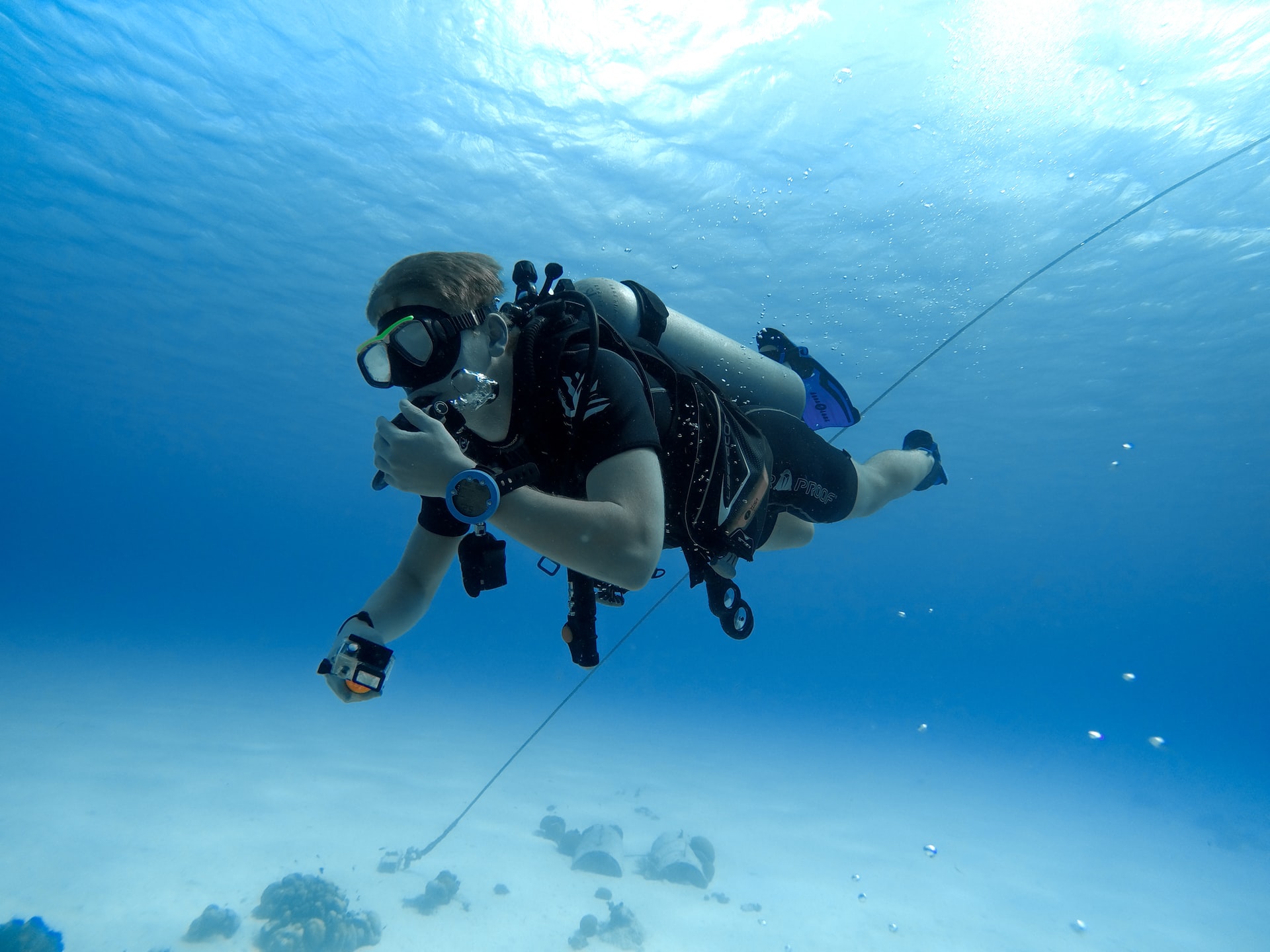
Are Scuba Divers Athletes? All the Facts (+New Competitive Forms)
-
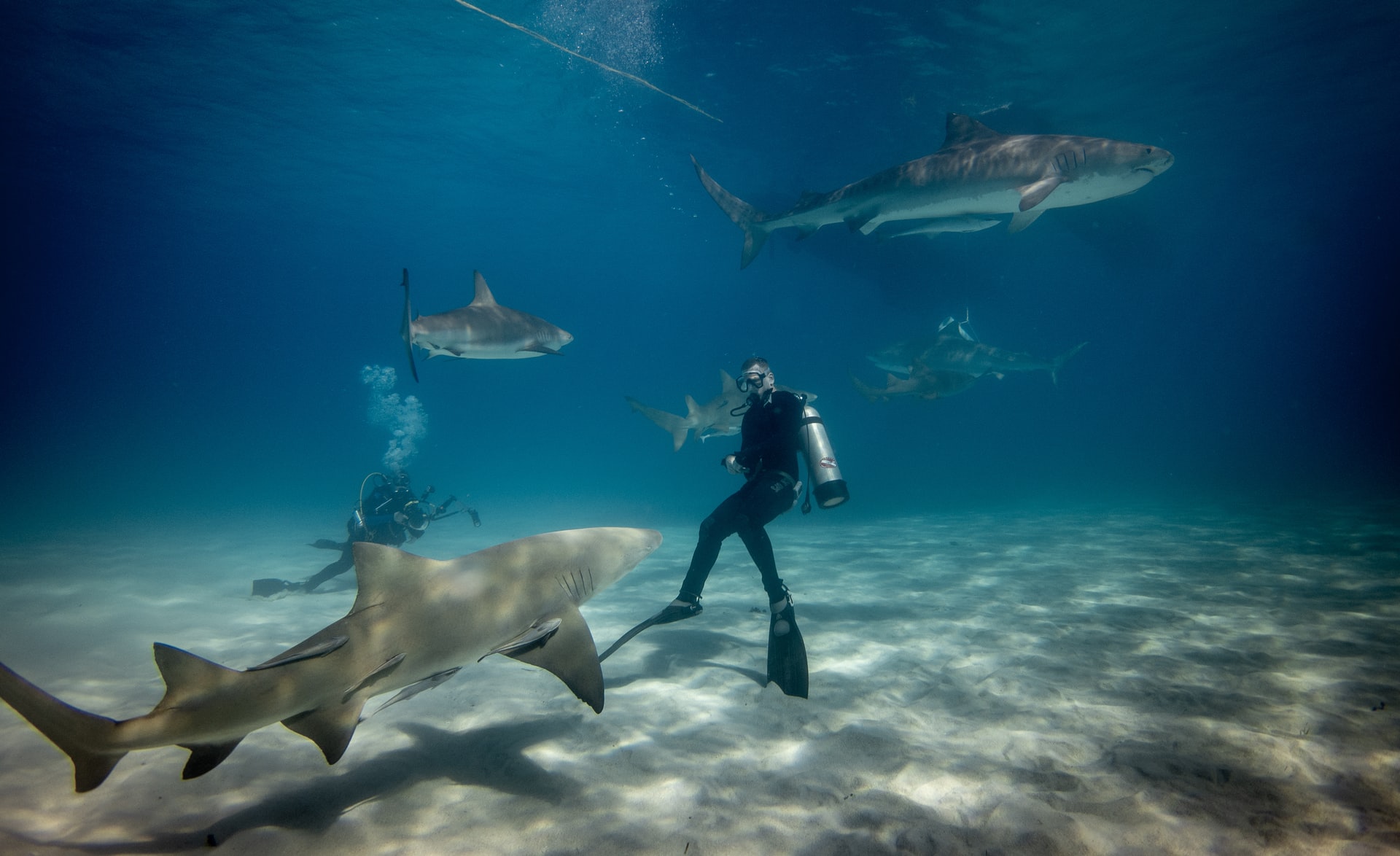
Are Sharks Scared of Scuba Divers? (What Every Diver Must Know)
-
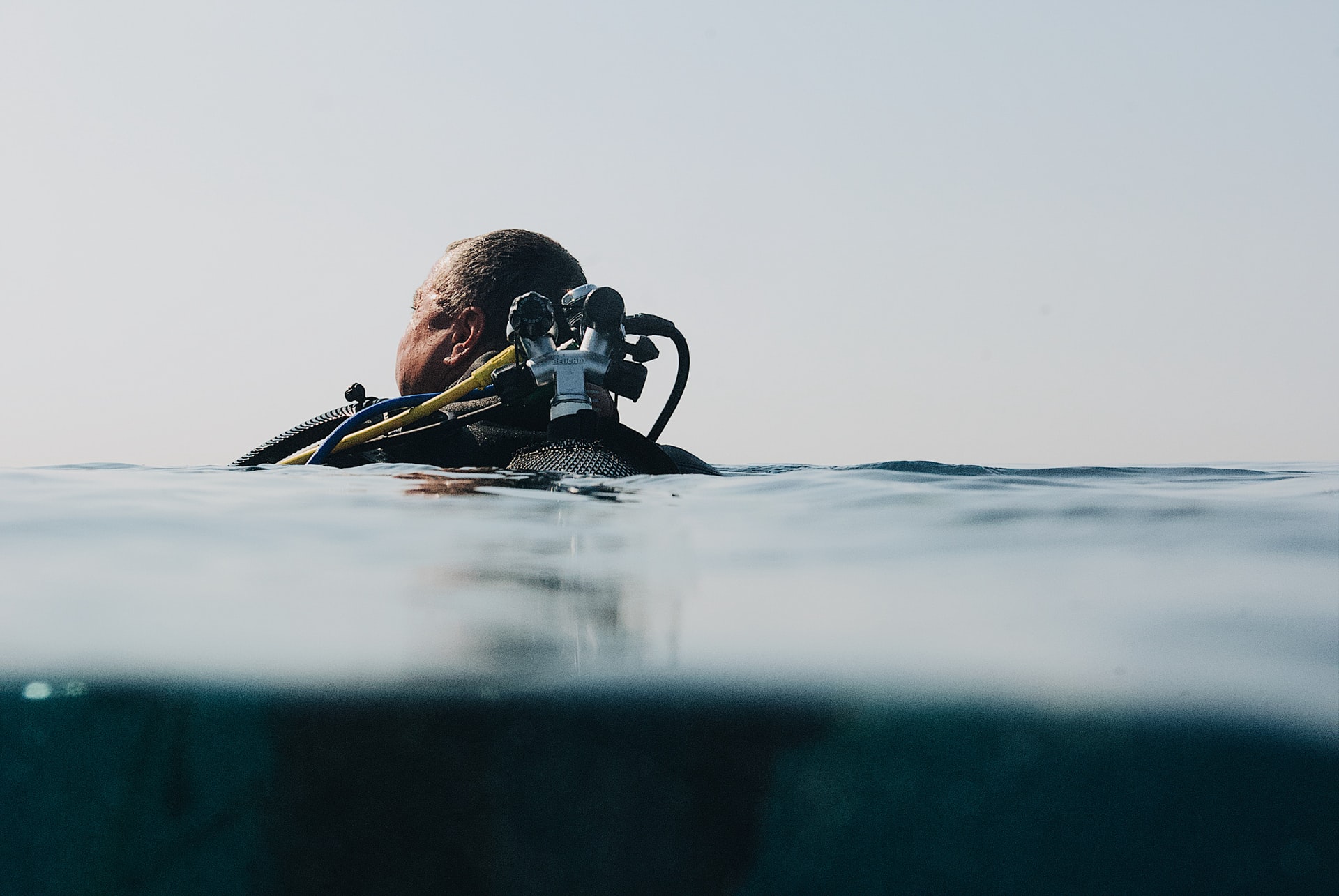
Who Should Not Scuba Dive? 17 Reasons (Every Diver Should Know)
-
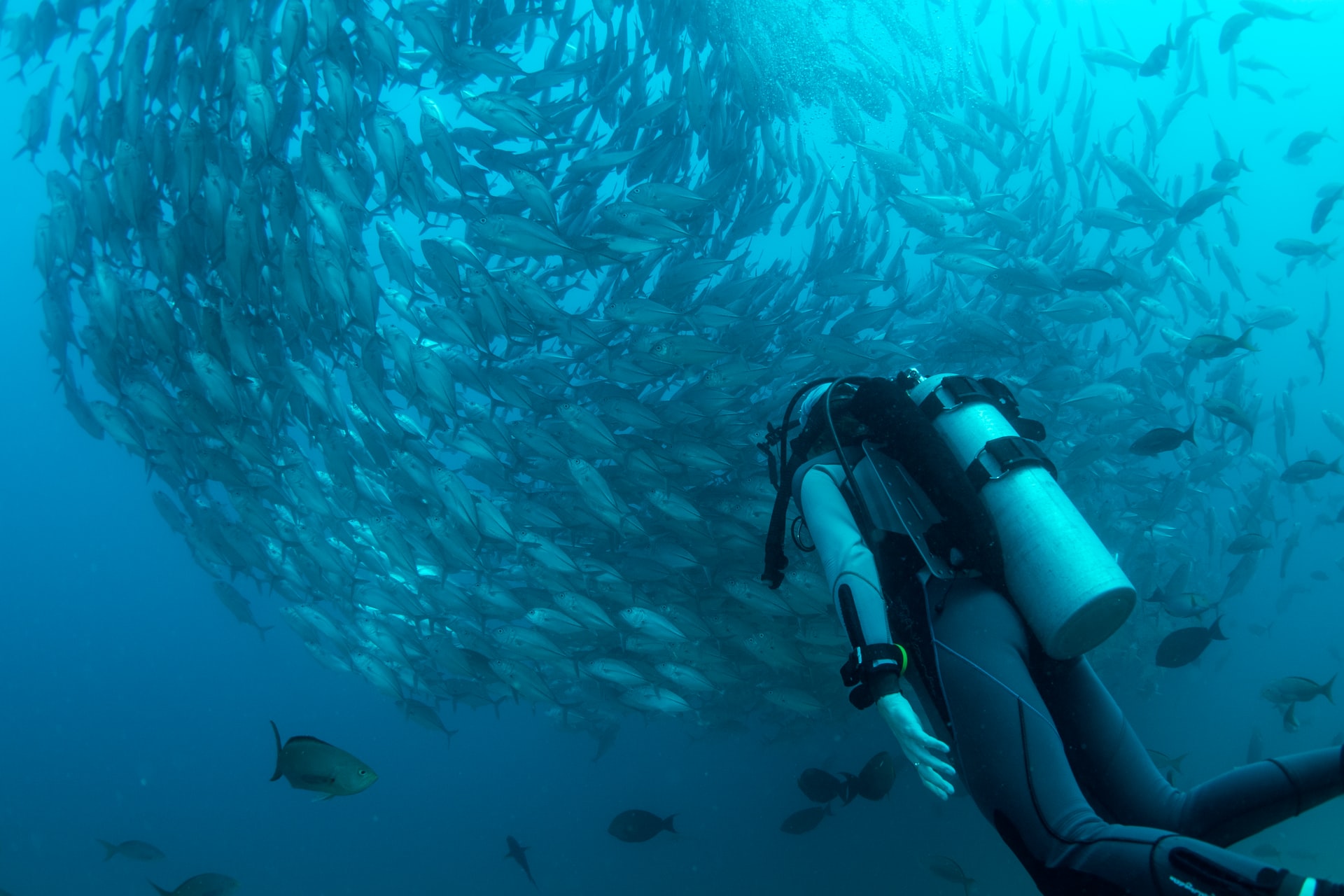
Should I Be Scared of Scuba Diving? 8 Common Fears (Debunked)
-
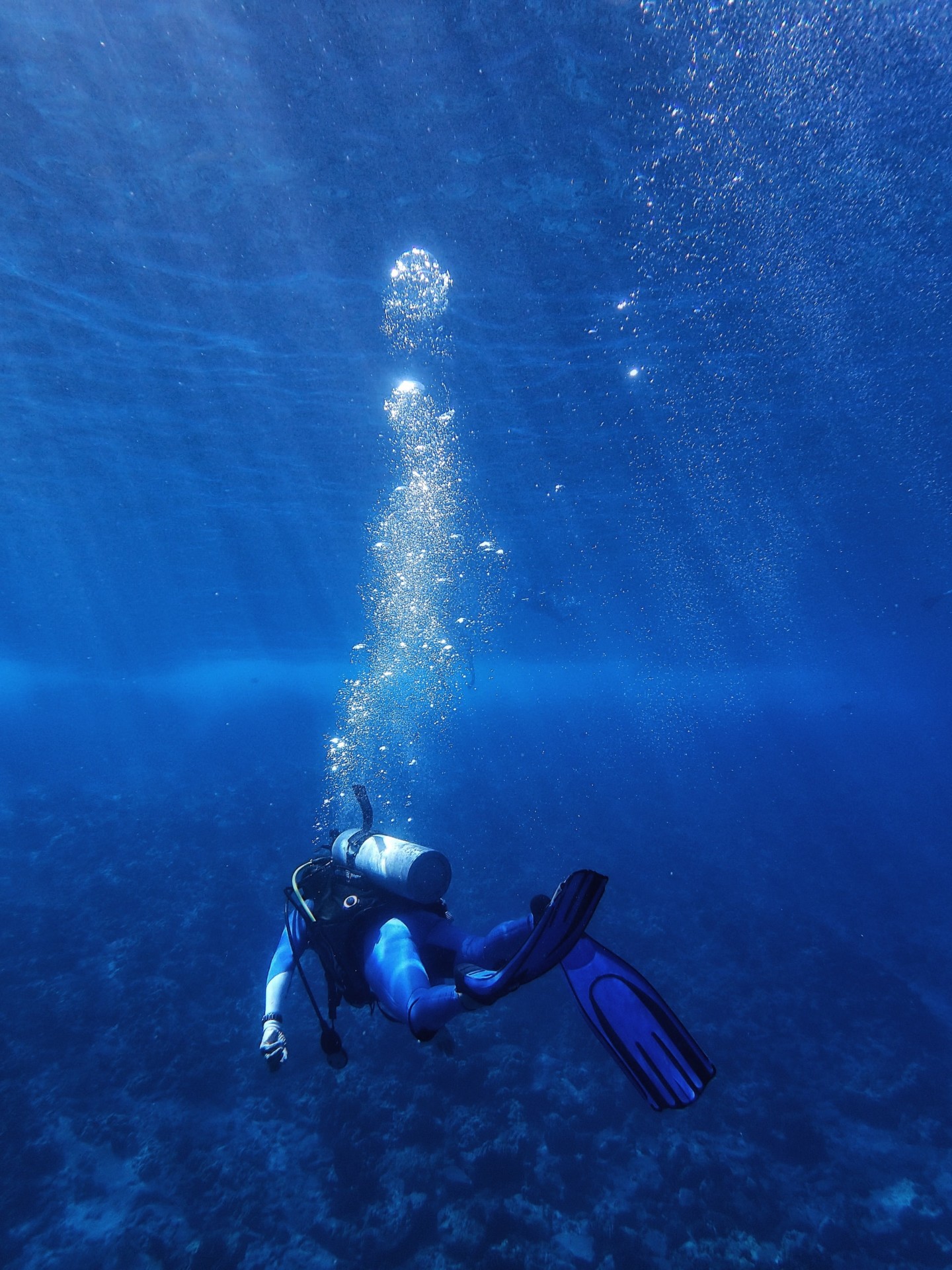
Why Do Scuba Divers Use More Air at Depth? (+4 Practical Tips)
-
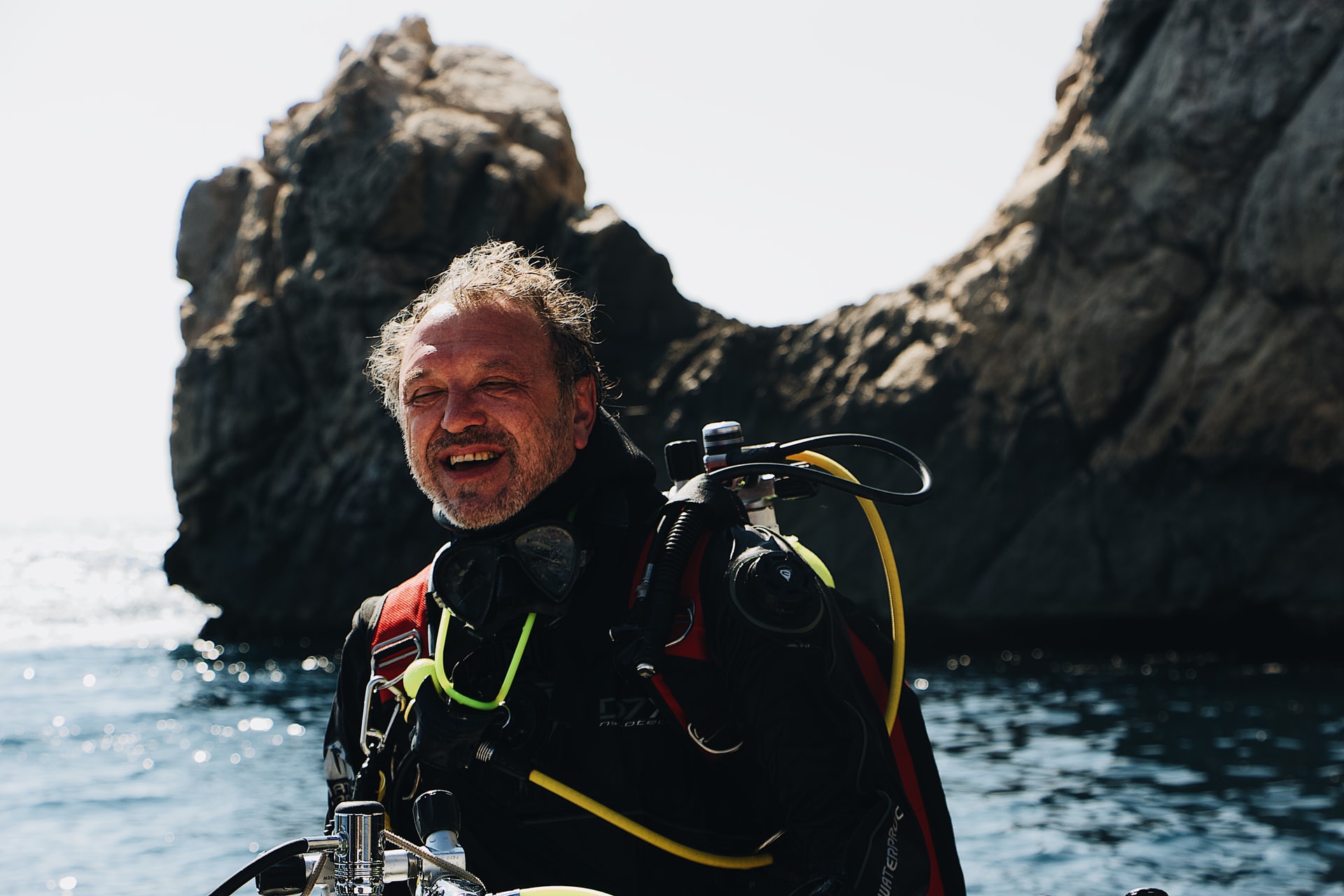
At What Age Should You Stop Scuba Diving? (+9 Tips for Older Divers)
-
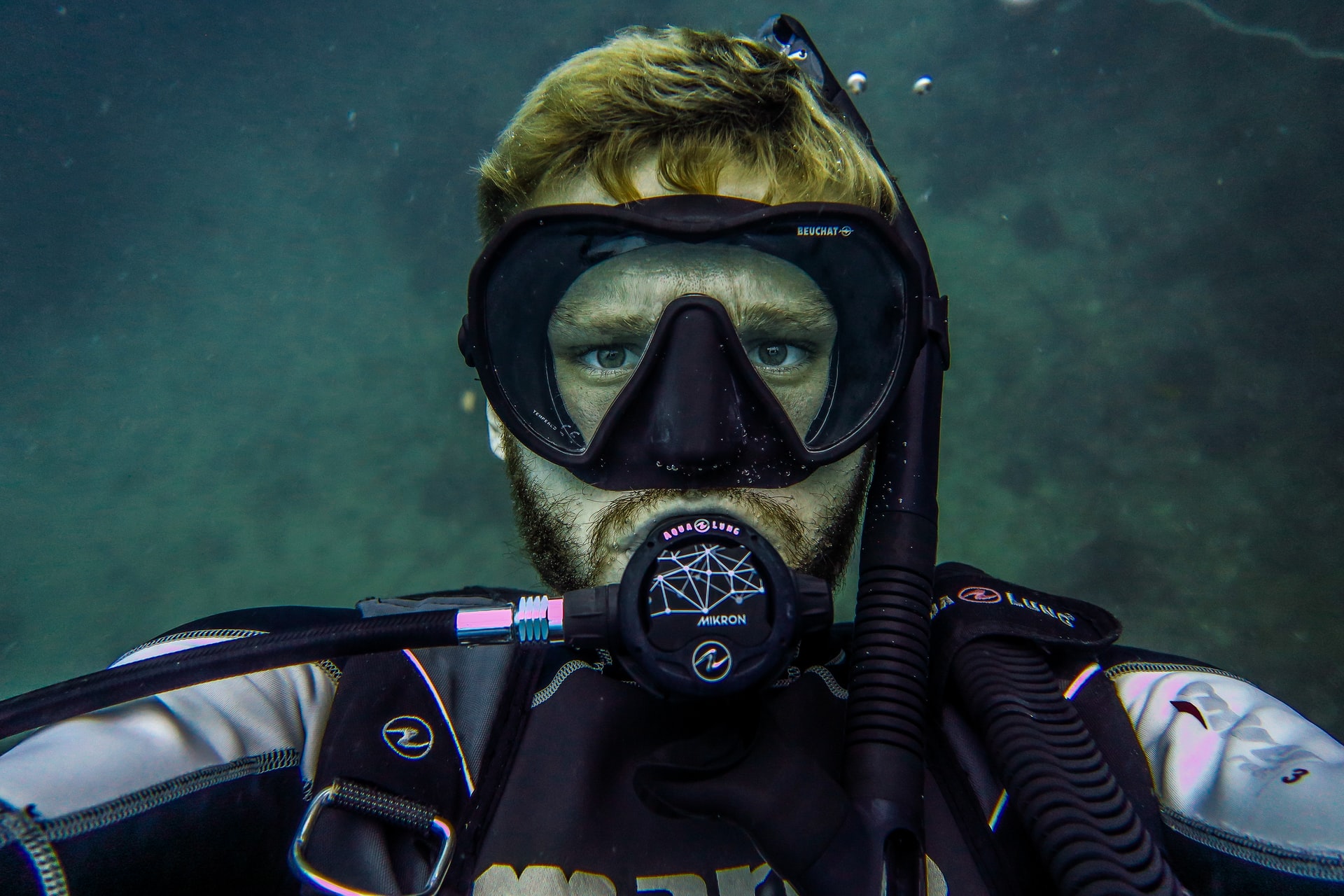
Should I Shave Before Scuba Diving? Crucial Facts (+9 Helpful Tips)
-
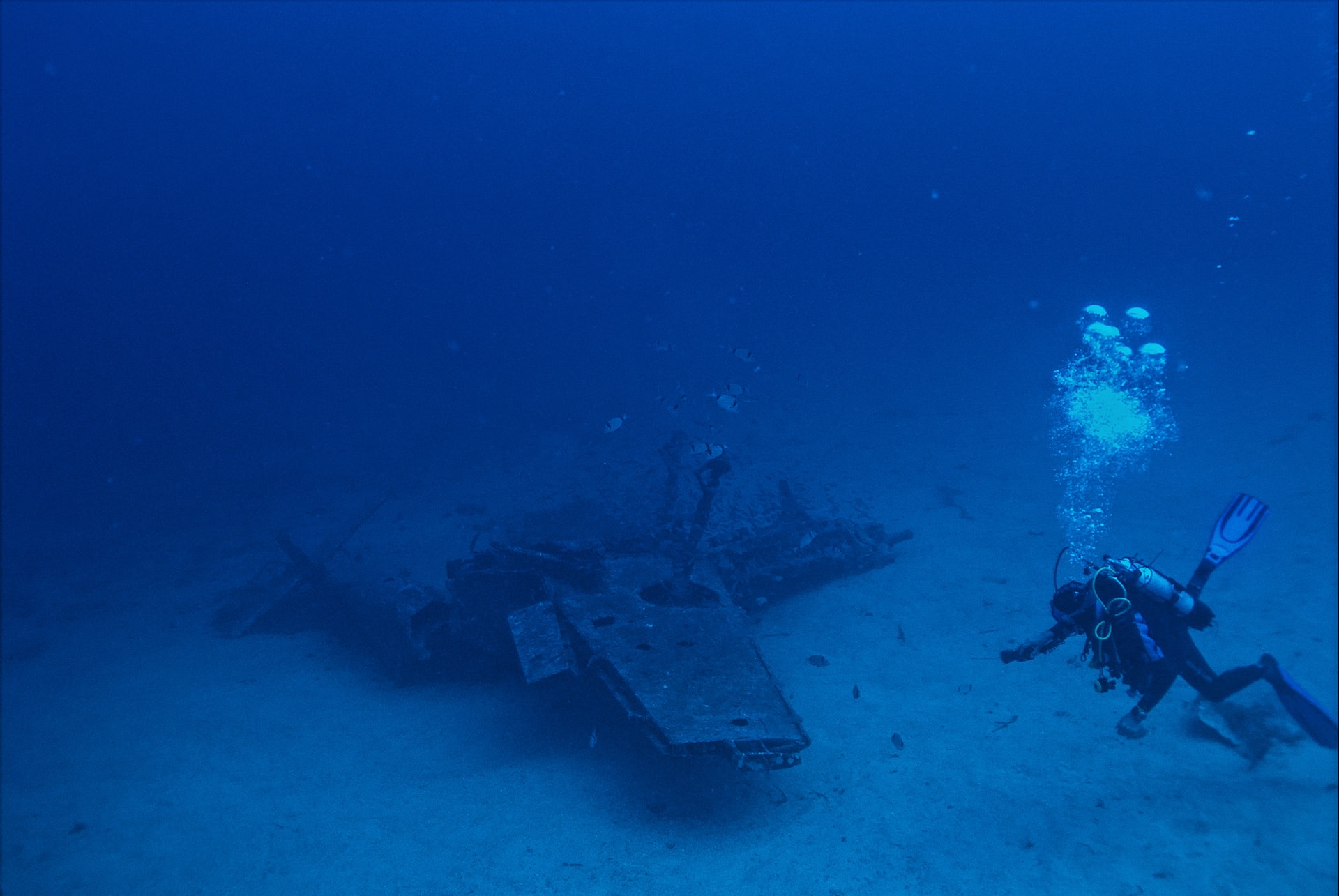
Why Do Scuba Divers Use Helium? (+Its Pros & Cons)
-
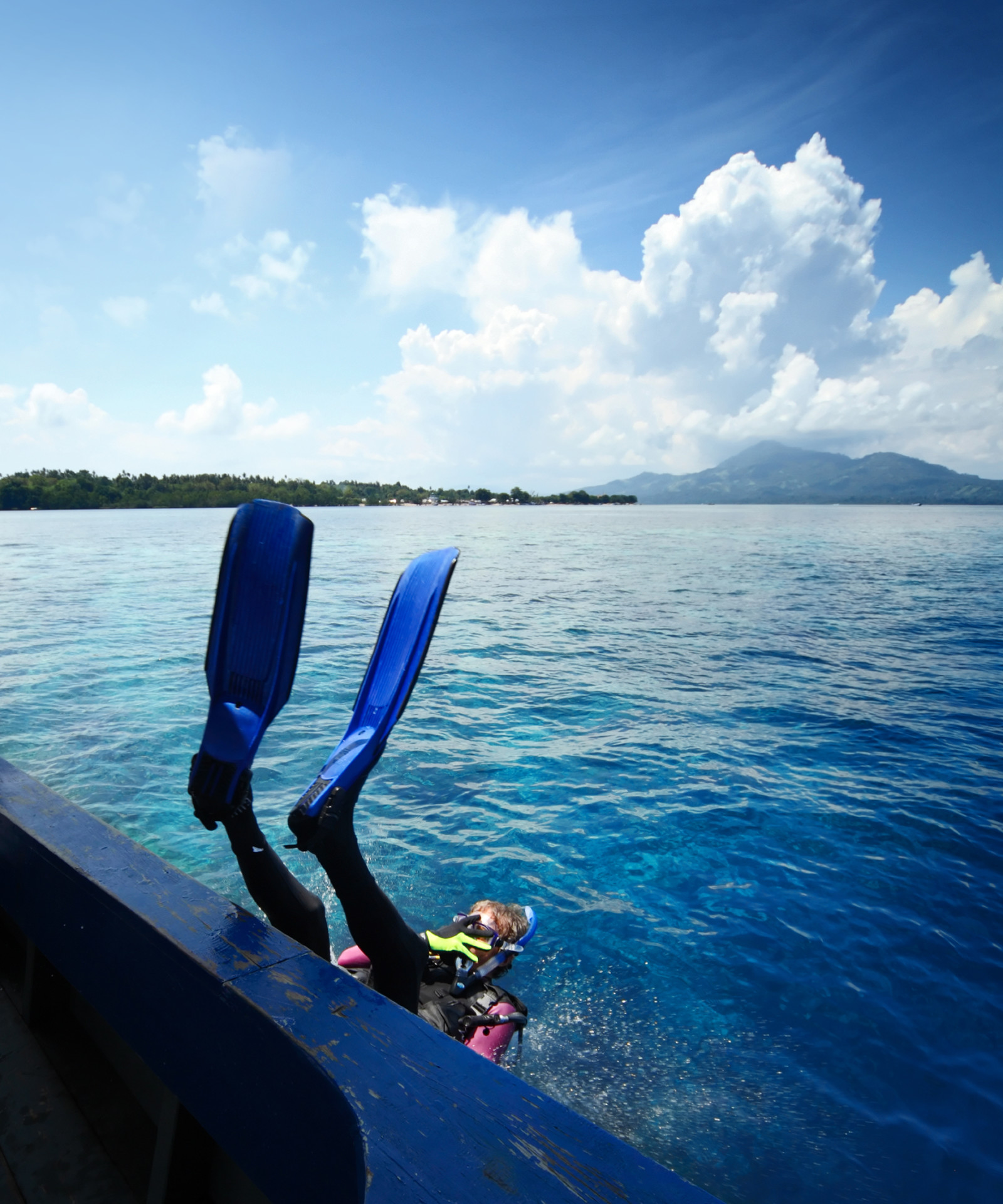
Why Do Scuba Divers Go in Backwards? (+3 Alternative Entries)
-
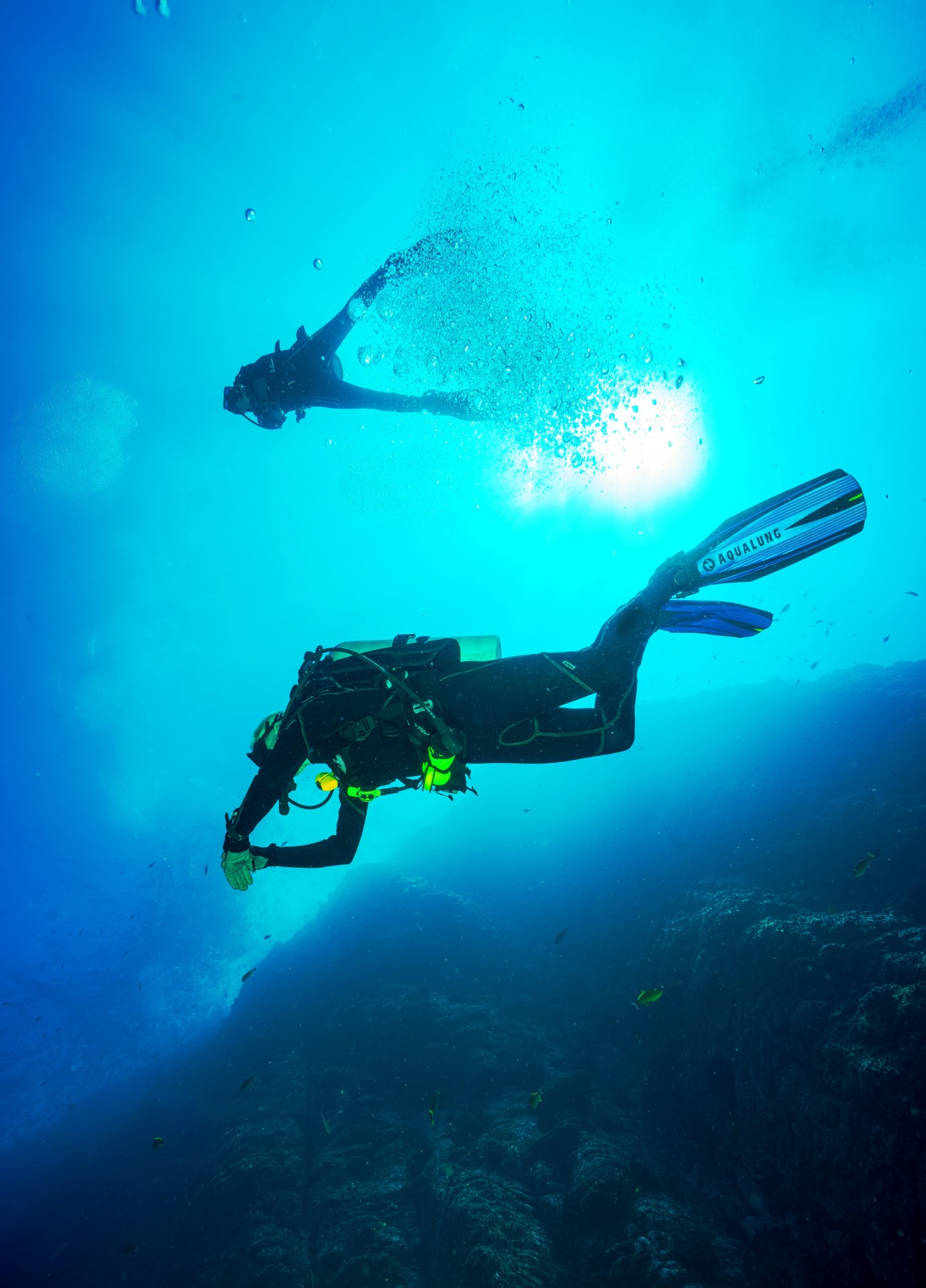
How Do Scuba Divers Sink and Float? (+Tips to Get It Right)

